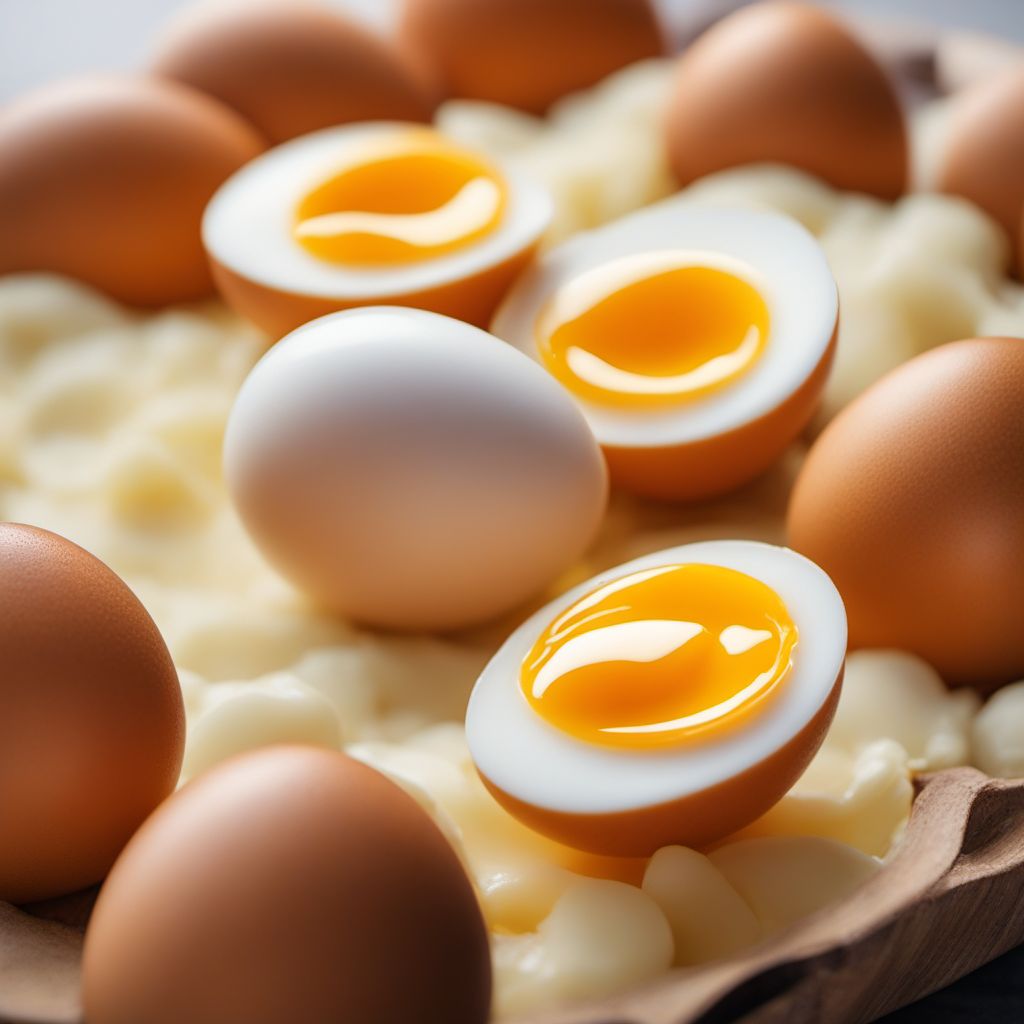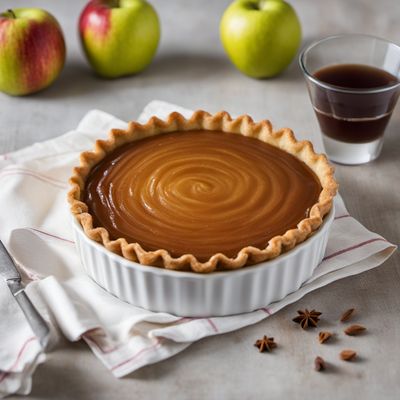
Ingredient
Egg yolk
The Golden Center
Egg yolk is the yellow, nutrient-dense part of an egg that is encased in the egg white. It has a smooth and velvety texture with a rich, buttery flavor. Its vibrant yellow color adds visual appeal to dishes, and it acts as a natural emulsifier, binding ingredients together in sauces, custards, and baked goods.
Origins and history
Egg yolks have been consumed for centuries and are believed to have originated in Asia. They have been used in traditional recipes across different cultures, including French pastries, Italian pasta, and Chinese egg custards. Egg yolks have cultural significance in religious rituals and celebrations as well. They are widely used in both sweet and savory dishes around the world.
Nutritional information
Egg yolks are a good source of essential nutrients, including vitamins A, D, E, and K, as well as omega-3 fatty acids. They also contain high-quality protein and minerals like iron and phosphorus. However, they are relatively high in cholesterol, so moderation is key.
Allergens
Egg yolks may cause allergies in some individuals, particularly those with egg allergies. It is important to be cautious and consult with a healthcare professional if you have any known allergies or sensitivities.
How to select
When selecting egg yolks, choose eggs with intact shells and vibrant, golden yolks. Avoid eggs with cracked shells or yolks that appear discolored or dried out. Opt for organic or free-range eggs for a higher quality and more flavorful yolk.
Storage recommendations
To maintain the freshness of egg yolks, store them in a covered container in the refrigerator. It is best to use them within a week of purchase. To extend their shelf life, you can freeze egg yolks by whisking them gently and storing them in an airtight container or ice cube trays. Thaw them in the refrigerator before use.
How to produce
Egg yolks can be produced by raising chickens or other poultry that lay eggs. However, it requires proper care, feeding, and suitable living conditions for the birds. It is recommended to consult with experts or experienced farmers for guidance on poultry farming.
Preparation tips
Egg yolks can be used in a variety of dishes, including custards, sauces, mayonnaise, ice cream, and baked goods like cakes and cookies. They can also be used to enrich soups and stews or as a glaze for pastries. When using egg yolks, it is important to temper them slowly to avoid curdling or scrambling.
Substitutions
Egg yolks can be substituted with whole eggs or egg substitutes in some recipes. However, the texture and richness may vary. In some cases, you can use dairy products like heavy cream or Greek yogurt as a substitute for egg yolks in certain recipes.
Culinary uses
Egg yolks are widely used in both sweet and savory dishes. They are essential in making custards, hollandaise sauce, aioli, carbonara, and various pastries like crème brûlée and lemon curd. They add richness and depth of flavor to dishes and contribute to the creamy texture of ice creams and gelatos.
Availability
Egg yolks are commonly available in grocery stores, supermarkets, and farmers markets worldwide.
More ingredients from this category
Recipes using Egg yolk » Browse all

Savarine with Vanilla Cream and Fresh Berries
Delightful French Savarine: A Sweet Symphony of Vanilla Cream and Fresh Berries

Austrian Eierschecke
Viennese Delight: Austrian Eierschecke - A Heavenly Twist on a German Classic

Homemade Italian Vanilla Gelato
Velvety Smooth Italian Vanilla Gelato: A Taste of Italy in Every Scoop

German Beer Soup
Bavarian Brew: A Hearty German Beer Soup

Decadent Chocolate Delight
Indulgent German Chocolate Cake: A Rich and Creamy Delight

Bienenstich - German Honey Almond Cake
Golden Delight: A Sweet Symphony of Honey and Almonds

Flódni - Hungarian Layered Pastry
Heavenly Layers: A Delightful Hungarian Flódni Recipe

British Apple and Caramel Tart
Indulgent Autumn Delight: British Apple and Caramel Tart

Tropical Delight Torta
Dominican Sunshine Torta: A Tropical Twist on a Spanish Classic

Dutch Esterházy Cake
Dutch Delight: Esterházy Cake with a Dutch Twist

Neenish Tart Recipe
Delightful Neenish Tart: A Sweet Australian Delicacy

Japanese-style Eggs Benedict
Sakura Eggs Benedict